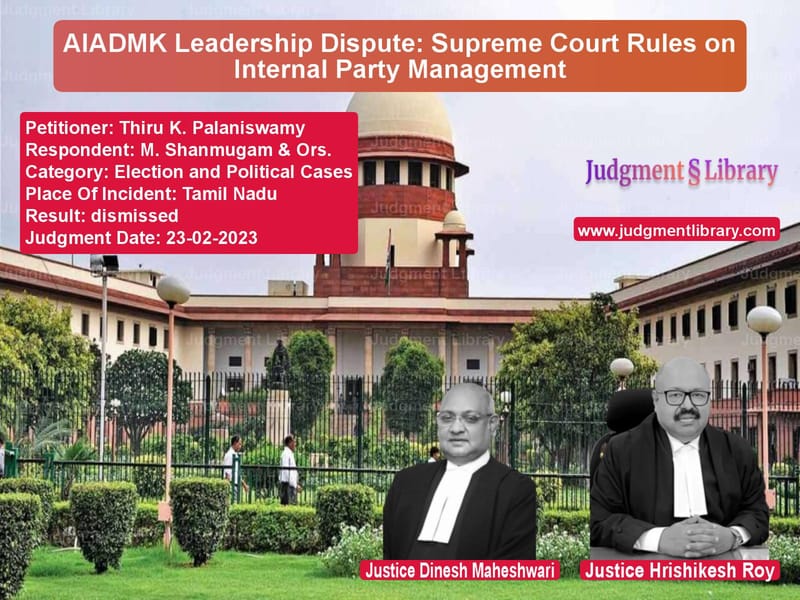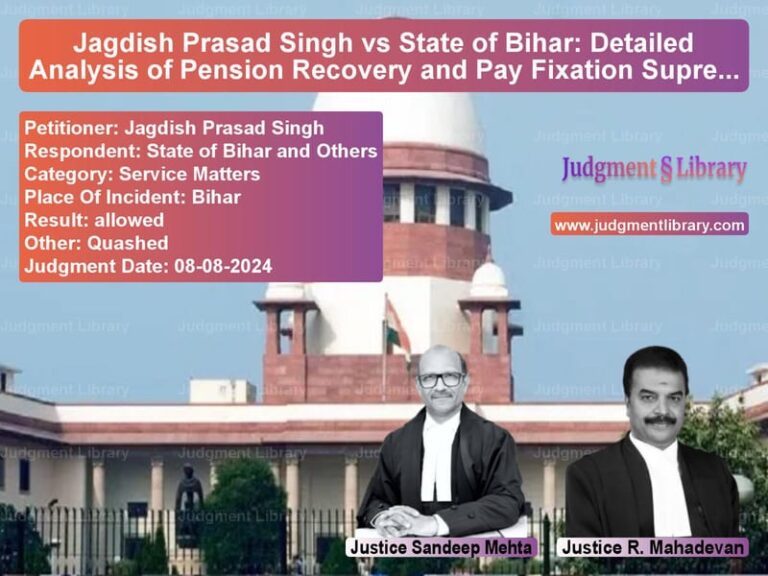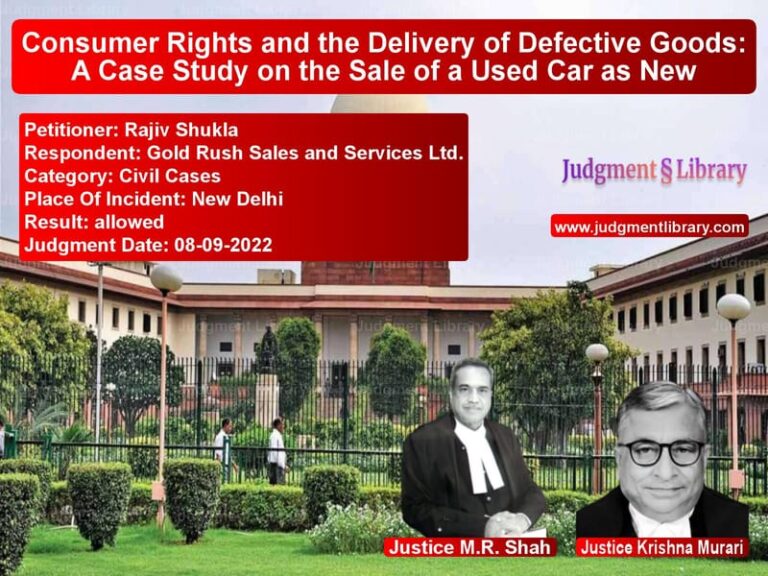AIADMK Leadership Dispute: Supreme Court Rules on Internal Party Management
The recent Supreme Court ruling in the case of Thiru K. Palaniswamy vs. M. Shanmugam & Ors. has brought clarity to a long-standing leadership dispute within the All India Anna Dravida Munnetra Kazhagam (AIADMK). This case revolved around the legality of decisions taken by the party’s General Council, the validity of a meeting held on July 11, 2022, and whether changes to the party’s leadership structure could be made without the joint authorization of the Coordinator and Joint Coordinator.
Background of the Case
The AIADMK, a prominent political party in Tamil Nadu, underwent significant changes in leadership after the demise of its then General Secretary, Dr. J. Jayalalithaa, in December 2016. The party initially moved to a dual leadership system with a Coordinator and Joint Coordinator, positions held by Thiru O. Panneerselvam (OPS) and Thiru E.K. Palaniswamy (EPS), respectively.
However, in June 2022, a leadership rift emerged, leading to a call for amendments to the party’s by-laws to revert to a single leadership structure. The dispute culminated in a series of legal battles concerning the validity of the General Council meetings held on June 23, 2022, and July 11, 2022.
Read also: https://judgmentlibrary.com/delhi-mayor-election-dispute-supreme-court-ruling-and-its-impact/
Key Legal Issues
The primary legal issues before the Supreme Court included:
- Whether the General Council meeting held on July 11, 2022, was validly convened.
- Whether the amendments made in the meeting, which abolished the posts of Coordinator and Joint Coordinator and reinstated a General Secretary, were legally sustainable.
- Whether the party’s internal dispute resolution mechanisms had been properly followed.
Petitioner’s Arguments
The appellants, led by OPS, contended that the meeting of July 11, 2022, was illegal and violated the AIADMK’s by-laws. They argued:
“The meeting was not convened by the authorized persons as required under Rule 19(vii) of the party’s by-laws, which mandates joint authorization by the Coordinator and Joint Coordinator.”
Additionally, the appellants emphasized that the notice period for the meeting did not adhere to the required 15-day notice period, making the proceedings legally untenable.
Respondent’s Arguments
The respondents, led by EPS, countered these claims by asserting:
“The General Council is the supreme body of the party and has the authority to amend the by-laws. The meeting on July 11, 2022, was requisitioned by over 80% of the General Council members, making it a validly convened meeting.”
They also argued that the dual leadership structure had become unworkable, leading to a deadlock in party decision-making, which necessitated a return to the single leadership system.
Supreme Court’s Observations
The Supreme Court examined the sequence of events, the party’s by-laws, and previous legal precedents to arrive at its decision. The Court made the following key observations:
- The General Council is indeed the supreme authority within the party, with the power to amend the by-laws and leadership structure.
- The meeting of July 11, 2022, was validly convened as it had the support of a significant majority of the General Council members.
- Although the AIADMK by-laws require joint authorization from the Coordinator and Joint Coordinator for convening meetings, the internal deadlock justified an alternative approach to decision-making.
The Court also stated:
“In matters of internal management of an association, courts generally do not interfere unless there is a violation of fundamental legal rights.”
Final Judgment
The Supreme Court upheld the decision of the AIADMK General Council to reinstate the single leadership model and affirmed the validity of the July 11, 2022, meeting. The key directions included:
- The resolutions passed in the meeting, including the abolition of the dual leadership structure, were legally valid.
- The General Council’s decisions must be respected as they were taken in accordance with democratic principles and party rules.
- Pending legal challenges related to leadership positions should be decided within the framework of party rules and by-laws.
Implications of the Ruling
This ruling has significant implications for political party governance in India:
- It reinforces the principle that the internal management of political parties should generally be left to their governing bodies unless clear legal violations occur.
- It clarifies that courts should intervene only in cases of procedural irregularities that substantially affect the rights of party members.
- It sets a precedent that leadership disputes within political parties should ideally be resolved through internal mechanisms rather than prolonged litigation.
Conclusion
The Supreme Court’s ruling in this case brings a decisive end to the AIADMK leadership dispute, reaffirming the power of the party’s General Council to make governance decisions. By balancing the need for legal scrutiny with the principle of non-interference in internal party matters, the judgment upholds democratic governance within political organizations.
Petitioner Name: Thiru K. Palaniswamy.Respondent Name: M. Shanmugam & Ors..Judgment By: Justice Dinesh Maheshwari, Justice Hrishikesh Roy.Place Of Incident: Tamil Nadu.Judgment Date: 23-02-2023.
Don’t miss out on the full details! Download the complete judgment in PDF format below and gain valuable insights instantly!
Download Judgment: thiru-k.-palaniswamy-vs-m.-shanmugam-&-ors.-supreme-court-of-india-judgment-dated-23-02-2023.pdf
Directly Download Judgment: Directly download this Judgment
See all petitions in Legislative Powers
See all petitions in Public Interest Litigation
See all petitions in Constitution Interpretation
See all petitions in Judgment by Dinesh Maheshwari
See all petitions in Judgment by Hrishikesh Roy
See all petitions in dismissed
See all petitions in supreme court of India judgments February 2023
See all petitions in 2023 judgments
See all posts in Election and Political Cases Category
See all allowed petitions in Election and Political Cases Category
See all Dismissed petitions in Election and Political Cases Category
See all partially allowed petitions in Election and Political Cases Category







